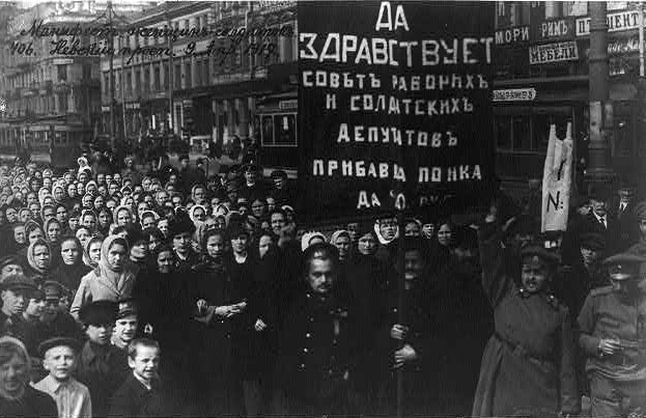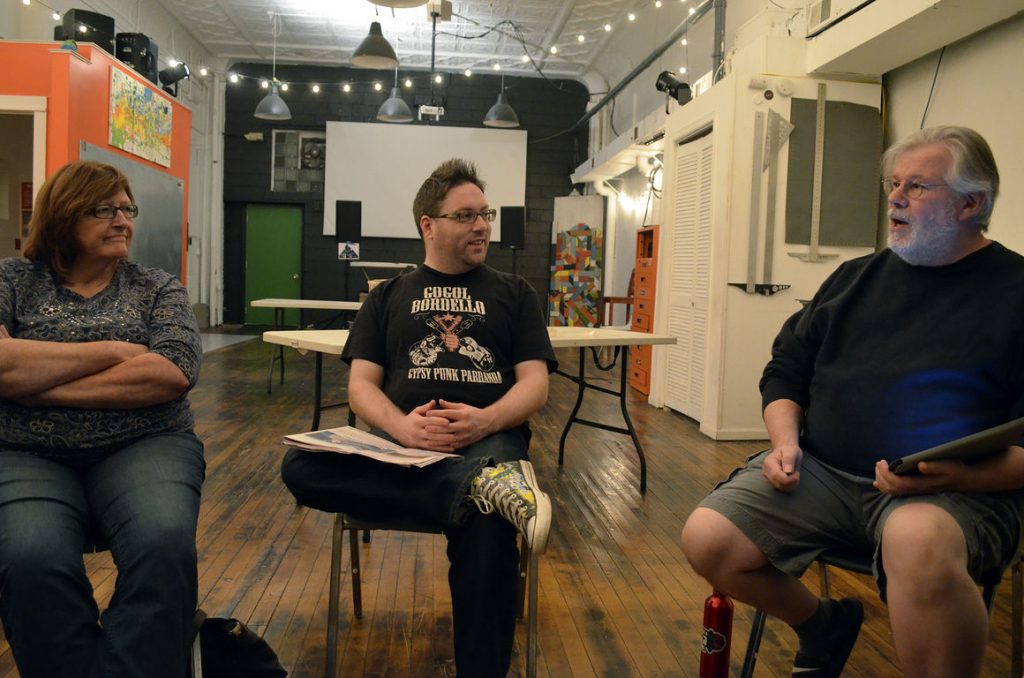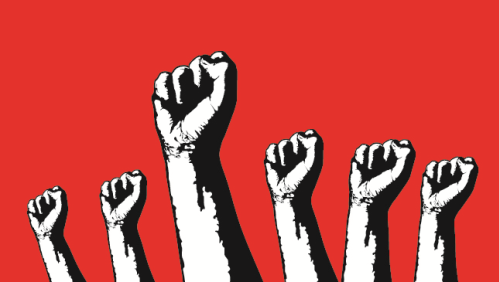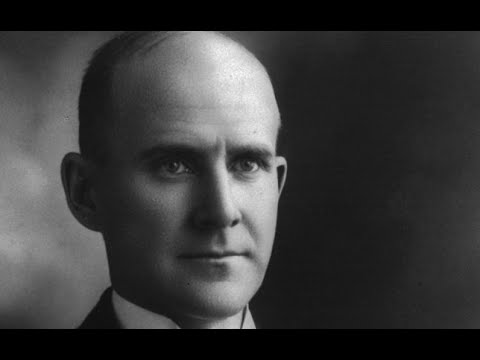This essay began as another in the series of articles meant to explain socialism to kids. I intended to draft it as best I could, and then rework it with simpler language for the younger audience. I may still do that, but decided to publish it here, as is, for adults. Questions and constructive feedback are welcome, as always, in the comments.
Common Arguments Against Socialism
Over the years since people first began talking about socialism, there have been many arguments made against it. Here are the three most common arguments made against socialism today, and some responses from a socialist’s point of view.
Capitalism is already the best imaginable system.
Folks sometimes argue that, for all of its faults, our current system is the best that could ever possibly be imagined. They say that the “free markets” under capitalism create the most wealth and freedom possible. They say that the system rewards hard work and genius, and gives us all of these marvelous products that make our lives better. Medical breakthroughs, iPhones, interesting foods – anything that we can dream, we can have – quicker, better and cheaper than ever before. Under capitalism, they say, the common working person lives like a king, and things just keep getting better and better. The “hidden hand of the market” is wise, and if we just let it do its work without interfering, everyone will be happier, healthier and more fulfilled than at any other time in human history. They will also often cite examples of people who grew up in extreme poverty and rose to great heights of wealth and power under capitalism, and then tell us that this would not be possible under any other system. If they can make it, we can too!
It is true that many people, especially people in the United States and other “developed” countries, seem to be doing pretty well. We have enough to eat, homes, cars, gadgets, and plenty of free time to enjoy them. So for a lot of us, this argument rings true. But when you step back and look at the facts, you see a very different story.
Half of the world’s children, 1.1 billion kids, live in poverty. 736 million people around the globe live in what is defined as “extreme poverty,” surviving on less than $1.90 a day. Even in the United States, a relatively wealthy nation, almost 50 million people, including 16.2 million children, live in households that lack the means to get enough nutritious food on a regular basis. One out of every five children in America go to bed hungry at some point each year.
Under capitalism, competition for access to natural resources, especially fossil fuels, has led to war after war for more than a century. Seizing Iraq’s oilfields was one of the main objectives of the British during World War I. The oilfields of Indonesia were a major motivation for Japan’s attack on Pearl Harbor, prompting the U.S. to enter World War II. Over the last five decades, as many as half of all the wars between nations have been linked to oil, and oil-producing nations are also more likely to face civil wars over control of the oil field profits.
Beyond the wars (and terrorist acts) linked to oil, we also know what the addiction to fossil fuels is doing to the climate on our planet. It is not unreasonable to say that the human race could be facing near-term extinction due to climate change, and the capitalist system is directly responsible. According to the Climate Accountability Institute, just 100 companies are responsible for 71% of global greenhouse gas emissions which are driving the disastrous warming of our climate.
Poverty, war, terrorism and climate disaster are just a few examples of things that make socialists doubt that capitalism is “the best system anyone can imagine.” In fact, we dare to imagine a better one. Socialists dare to imagine a world where no one ever has to go to bed hungry. Socialists dare to imagine a world where the profits of a few dozen companies don’t threaten the very existence of life on the Earth.
Okay, capitalism has its problems, but under socialism, nobody would do anything and we’d all starve.
Another common criticism of socialism is that if everyone’s basic needs were met, nobody would work, and the whole society would break down. There would be no punishment for laziness, and no reward for working hard or being smart. The system would basically take things away from hardworking people who deserve them, and give those things to lazy people who don’t deserve them.
This criticism says more about life under capitalism than it does about socialism. Under capitalism, we are conditioned to compete with each other. The idea is that if we work harder than other people, or are smarter than they are, or more creative, that we’ll get a reward. We’ll get the reward because we deserve it. So, by definition, people who don’t get the rewards are lazy and stupid and lack imagination. So, naturally, we think that a system set up to meet human needs can’t work, because people are naturally lazy and stupid and if someone isn’t cracking a whip over them all the time, they won’t do anything, because “that’s just human nature.”
There are a lot of things wrong with this argument, but I’ll point out three of the major flaws.
First, it’s just not true that under capitalism the people who work hardest or are smartest or otherwise most deserving get the rewards. Some of the smartest, most creative, most conscientious, most hard working people in the world have barely enough to survive and to take care of their families. And some of the laziest, dumbest, most good-for-nothing slackers on the planet have all the wealth you can imagine. Go say hello to anyone working in a warehouse or at a fast food restaurant, and you’ll see an example of hard work that isn’t properly rewarded. Turn on your television, especially when our President is speaking, and you’ll see an example of the opposite.
Second, people already do things all of the time out of a sense of duty, or obligation, or love, or joy, without any thought about monetary reward. Every time that someone in your household cooks a meal for you, or cleans house, or folds laundry, or takes a dog for a walk, that’s an example. Some of the most meaningful and important work that people do every day is not motivated by the prospect of a paycheck or the threat of starvation.
Third, we know from history that there were societies based on cooperation and meeting everyone’s needs. Life may have been hard sometimes for these “primitive communist” societies, and they had their problems like everyone else, but they managed to survive and be happy without the need to coerce people to get them to work. People worked hard, and worked together, because it was their way of life, not because of threats or incentives.
So the notion that once our basic human needs are met that we would all just put our feet up on the couch and watch Netflix all day has no basis in fact, except for the cruel facts of life under capitalism. We dare to imagine a better world.
But socialism never works. It always ends up with people standing in line for hours just to get a loaf of bread. And it also always ends up with horrible monster dictators like Stalin and Mao, and they kill millions of people. Nobody is ever free under socialism.
Attempts at establishing socialist societies have definitely failed. And some of the boldest and most promising experiments have turned out the worst. But this does not mean that all attempts at socialism are doomed. The failures of the past have had their roots in the conditions of a particular time and place. There’s nothing baked in to socialism that makes it more vulnerable to social problems or murderous tyrants than other systems.
We shouldn’t dismiss the criticisms or make excuses for failures and atrocities, but we also shouldn’t allow the dream of socialism to be defined by those failures and atrocities. Early attempts at difficult and complicated things often fail. We can learn from those mistakes and begin again.
When someone brings up the issue of “freedom” under socialism, there are several questions that should be asked. Freedom for who? For everybody? Is everybody really free under capitalism? Are people free to leave a job that they hate? A job that stresses them out? I suppose so, at least in theory. And they are free to starve too. In theory we’re free, but in reality not so much.
Under socialism the goal would be a society where people are truly free to develop themselves to the limits of their potential. Is that even possible? Frankly, we don’t know, but we do dare to imagine a world where, in the words of the Communist Manifesto “the free development of each is the condition for the free development of all.”
The goal of developing a truly democratic global socialist society is daunting, there is no doubt. Karl Marx believed that it is through the process of struggle, the process of revolution, that we will become “fit to rule.”
So let us begin.





